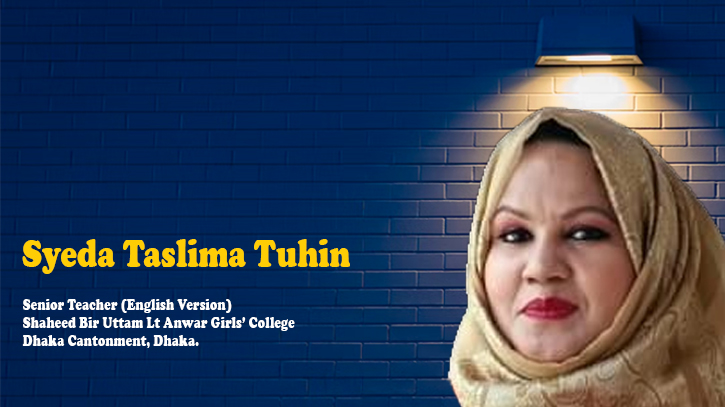
Photo : Messenger
Education plays a vital role in shaping the future of a nation. Recognizing the need for an updated and comprehensive curriculum, Bangladesh has recently introduced a new education curriculum for students in Class VI and VII. This article explores the key features and objectives of the new curriculum and highlights its potential to revolutionize the education system, empower students, and prepare them for the challenges of the 21st century.
Holistic Approach to Learning: The new curriculum takes a holistic approach to education, focusing not only on academic knowledge but also on the development of critical thinking, problem-solving, creativity, and digital literacy skills. It aims to nurture well-rounded individuals capable of adapting to a rapidly changing world. The curriculum emphasizes hands-on learning experiences, project-based assessments, and collaborative activities to foster active student engagement and promote a deeper understanding of concepts.
Integration of Technology and Digital Skills: In recognition of the growing importance of technology in the modern world, the new curriculum integrates digital skills across various subjects. Students are exposed to technology-enhanced learning methods, including the use of computers, educational software, and online resources. By equipping students with digital literacy skills, the curriculum aims to bridge the digital divide and prepare them for the digital age, where technology is an integral part of work and daily life.
Emphasis on Critical Thinking and Problem-Solving: The new curriculum places a strong emphasis on developing critical thinking and problem-solving skills among students. It encourages them to analyze information, evaluate evidence, and think creatively to solve real-world problems. Through interactive classroom discussions, case studies, and practical exercises, students are encouraged to question, explore, and develop independent thought processes.
This approach cultivates a generation of students who can approach challenges with confidence and adaptability. 4. Inclusion of Contemporary and Relevant Content: The curriculum incorporates contemporary and relevant content to ensure students are equipped with up-to-date knowledge and skills. It covers a wide range of subjects, including science, mathematics, social sciences, languages, arts, and physical education. The inclusion of current events, social issues, and cultural diversity fosters a broader understanding of the world and encourages empathy and global citizenship among students.
Assessment for Learning: The new curriculum promotes a shift in assessment practices from rote memorization to comprehensive evaluation. It emphasizes formative assessment methods, such as quizzes, projects, presentations, and group work, to assess students' understanding and progress. This approach provides teachers with valuable insights into students' strengths and areas for improvement, allowing them to provide personalized feedback and support individual learning needs.
Teacher Training and Support: Recognizing the critical role of teachers in implementing the new curriculum effectively, the education system in Bangladesh has invested in comprehensive teacher training programs. Teachers receive professional development opportunities to familiarize themselves with the curriculum's objectives, teaching methodologies, and assessment strategies.
Ongoing support and resources are provided to ensure teachers are equipped to deliver quality education and facilitate students' overall growth. Conclusion: The introduction of the new education curriculum for Class VI and VII in Bangladesh marks a significant milestone in the country's educational landscape.
By embracing a holistic approach to learning, integrating technology, emphasizing critical thinking, and providing contemporary content, the curriculum strives to create well-rounded individuals equipped for success in the 21st century.
With proper implementation, teacher support, and continuous evaluation, this new curriculum has the potential to transform education, empower students, and pave the way for a brighter future for Bangladesh.
Writer:
Syeda Taslima Tuhin
Senior Teacher (English Version)
Shaheed Bir Uttam Lt Anwar Girls’ College
Dhaka Cantonment, Dhaka.
Messenger/Sajib








